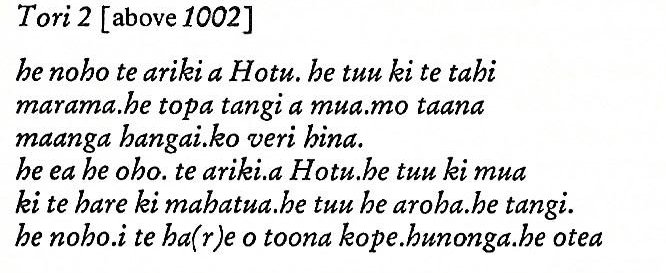
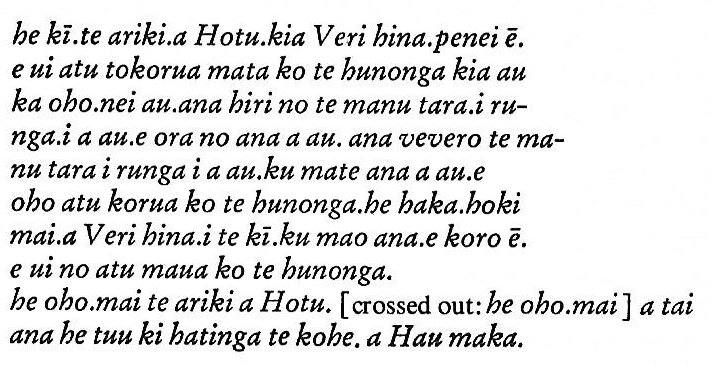
| he
tuu te ariki.a Hotu.he ui i
aha.tau ngaio |
King Hotu arrived [he
tuu te ariki.a Hotu] and asked [he
ui], 'How [i
aha] were these young men killed [i
mamate ai]?'
The voices [te
reo] of the protective spirits (atua
akuaku) of Hotu, namely Kuihi and Kuaha,
replied, 'Oroi introduced [hakauru]
the long, sharp antennae of the spiny lobster (vaero
ura) (into the orifice) and the pulled out the
intestines completely [i
kumekume mai i te kokoma ki haho] and
left them hanging (out). This is how [penei
ē] the victims (ika) [te
nga ika ena] were killed [i
mamate ai].' |
|
era.i mamate ai.he ki mai te reo o te atua. |
|
akuaku o Hotu.ko kuihi.ko kuaha.penei ē. |
| a
Oroi.i hakauru.hai
vaero ura.i kume(-) |
| kume
mai i te kokoma ki haho i hoa.te ua |
| o te
nga ika ena i mamate ai.he
hakaiti |
| Aha. What? Which?
To do, to be what? He aha koe? what are you?
E-aha-á koe? what are you doing? Ku-aha-á
koe? what have you done? Kahu aha? what,
which garment? E-aha-mai-á ki a koe? what
does that do you, what harm does it do you, what is
it to you? Aha is preceded by the article
te when introduced by a preposition: te: o te
aha, why, what for; mo te aha, ki te aha,
what for, with what purpose? Vanaga. Gaaha,
to burst, to become ruptured, to have a discharge of
pus, of blood. Ku gaaha te toto o te ihu. He
had a nose-bleed. E û'i koe o gaaha te îpu.
Be careful not to break the bottle (lit. look out
lest the bottle burst). E tiaki á au mo gaaha mai
o te harakea. I shall wait for the abcess to
burst. Gaatu, totora reed. Vanaga. To break,
to split, to crack, to rive; fracture, fissure,
break, crack, crevice (gaaha); niho gaa,
toothache, broken teeth; gaamiro (miro,
ship) shipwreck; gaàpu (pu 2),
abortion; poki gaàpu, abortive child. T Mq.:
naha, nafa, split, fissure. Ta.:
aha, afa, crack fissure. Gaatu 1.
Bulrush, reed. 2. (gatu). Churchill.
Ihi. 1. Line of singing women at a feast
or an êi. 2. Ihi, ihi-ihi, to
break up into small pieces, to crumble, to tear to
pieces; he-ihi i te maúku, to separate
fibres. Vanaga. Ihiihi, to hop. Churchill.
Hai: 1. With (instrumental). 2. To,
towards. He oho hai kona hare, to go home.
He oho hai kona hagu, mo kai, to go where there
is food to eat. 3. Give me: hai kumara, give
me some sweet potatoes. Ha'i: 1.To give, to
deliver, to hand over. 2. To carry under the armpit.
3. To hug, to embrace. 4. To wrap up; parcel,
packet. Ha'iga, armpit. Haîara, to
guide, to direct (someone). Ka haîara koe i taaku
poki ki te kona rivariva, guide my son to a good
spot. Vanaga. 1. To wrap up, to make into parcels,
to envelop; food tied up in bundles (ai). PS
Sa.: sai, a tightly bound bundle. To.:
haihai, to tie up in a bundle. Fu.: sai,
to tie; saisaiga, a bundle. Niuē:
hai, to
tie fast. 2. To carry, to transport. Ta.:
afai, to carry an
object, to transport; afafai,
capable of carrying a heavy burden, to carry here
and there. 3. To be in heat, to copulate, to
embrace; concupiscence, fornication, impurity;
lascivious, impure (ai).
P Ta.: ai,
to copulate. Haiga,
armpit. PS Sa.: fa'iga,
a joint. Haipo,
heart; haipo rahirahi,
shortness of breath. Mq.: houpo,
heart. Haite
(ha
causative, ite)
numeral. Churchill. Pau.: haifa,
virile, manly. Ta.: aiaha,
a brave young warrior. Churchill. Mgv.:
hai, a fish. Ta.:
fai, the
stingray. Mq.: fai,
hai, id.
Sa.: fai,
id. Ma.: whai,
id. Haihai,
evening (metathetic). Sa.: afiafi,
id. Churchill.
Vaero.
Chicken's long tail feather; lobster's antenna (vaero
ura). Vanaga. Tail of a kite, tail of a bird (uero).
T Pau.: tuavaero, rump; kaero, tail.
Mgv.: vero, tail. Mq.: veó, id. Ta.:
aero, id. Churchill.

Iti. Little, small, medium; iti atu,
less; iti no, small quantity, rare; no iti,
superficial. Itia, shrunken. Itiiti,
scanty, slim; hare itiiti no, cabin;
itiiti noa, mediocre, mediocricity. Hakaiti,
to make small, to lessen, to weaken, to impoverish,
to thin out, to reduced, to diminish, to retrench,
to curtail, to subdue, to mitigate, to abate.
Hakaitiiti, to squat, to croach. P Mgv.: iti,
small. Mq.: iti, id. Ta.: iti, id.
Churchill. |
| a
Hotu.i te tangi.mo nga hahaki
a Roro. |
Then Hotu started
lamenting (tangi) the death of Hahaki A Roro
and his brothers [nga
hahaki a Roro] with these words [penei
ē]: |
|
penei ē. |
| Ha. 1. Four. 2.
To breathe. Hakaha'a, to
flay, to skin. Vanaga. 1. Four. P Mgv., Mq., Ta.: ha, id.
2. To yawn, to gape. 3. To heat. 4. Hakaha,
to skin, to flay; unahi hakaha, to scale
fish. Mgv.: akaha, to take to pieces, to take
off the bark or skin, to strip the leaves off
sugarcane. 5. Mgv: ha, sacred, prohibited.
Mq.: a, a sacred spot. Sa.: sa, id.
Churchill. Haha. 1. Mouth (oral cavity, as
opposed to gutu, lips). 2. To carry
piggy-back. He haha te poki i toona matu'a,
the child took his father on his back. Ka haha
mai, get onto my back (so I may carry you).
Vanaga. 1. To grope, to feel one's way; po haha,
darkness, obscure. 2. Mouth, chops, door, entrance,
window; haha pipi, small mouth; haha
pipiro, foul breath; ohio haha, bit of
bridle; tiaki haha, porter, doorkeeper.
Churchill. Hahaga. Ridge, summit, wall plate.
Maroa hahaga, to measure lands, to walk at a
great pace. Churchill. Haki. Certainly.
Churchill. |
|
Tori 1
E:1001
To. 1.
Particle sometimes used with the article in ancient
legends; i uto to te hau, the ribbon was in
the float. 2. To rise (of the sun) during the
morning hours up to the zenith: he-to te raá.
Vanaga. 1. Of. T Pau., Ta.: to, of. Mgv.:
to, genitive sign. Mq.: to, of, for. 2.
This, which. Churchill. Mgv.: To, to make a
canoe of planks. Mq.: to, to build a canoe.
Sa.: to, to build. Churchill.
Ri. 1.
Mgv.: ri,
a string, a girdle, to tie together. Sa.:
li, the
sennit lashing of canoe outriggers. Mgv.:
rino, to
twist a thread between the forefinger and thumb.
Ta.: nino,
to twist, to spin. Mq.:
nino, id. Ma.:
rina, a
twist of two or three strands. 2. Ta.:
ri, to
hang. Ha.: li,
to hang by the neck.
Hakariga, to subdue. Churchill. |
| tute
nui no mai koe.e Oroi e. mai hiva mai |
You alone have continued
the great persecution, oh Oroi [e
Oroi e], from Hiva, from the (home)land [mai
hiva mai te kainga], so that the father
(?) would not achieve g reatness [o
hau a koro.au]. Woe my children (?) [ē
aki poki ē]!
Great pei fish of Te Hakarava! [pei
nui o te hakarava] Great lobster of Te
Manavai! [ura nui o
te mana vai] Great moray of Te Manavai! [koiro
nui o te mana vai] Great eel of Tea Vai
Aro Huri! [koreha
nui o te a.vai.arō huri] |
| te
kainga.o hau a koro.au ē aki poki pei nui |
| o te
hakarava ē. ura nui o te mana vai.koiro |
| nui
o te mana vai.koreha nui o te a.vai.arō huri. |
| he
mounga ana te tangi nei. |
When the lament was
finally over [he
mounga ana te tangi nei], they took them
(the dead) and buried [muraki]
them in the burial place [i
roto i te ahu] of Ahu Ature Hoa (i.e., in
Anakena). |
| he
mau hee muraki.i roto i te ahu. i āhū a tu(-) |
| re
hoa.angiangi e te tangata.penei ē.a
Oroi |
Now the people knew: (It
was) Oroi's doing that Hahaki A Roro and his
(brothers) had their intestines torn out [i
kumekume i te kokoma]. |
| i
kumekume i te kokoma.o nga hahaki.a Roro. |
| he
kē.te ariki a Hotu.penei ē.i
piko no mai a |
Then King Hotu grieved
with the following (words): 'Oroi had secretly
hidden himself when he came (with us) on board the
canoe to this place.' |
|
oroi.i oho mai nei i runga i te miro. |
|
Ore. 1. Ha.,
ole, to speak through the throat, guttural,
or through a trumpet; name of a large sea-shell;
ole-ole, talk thickly or indistinctly, as one
angry or scolding, to grin like the idols; olo,
to be loud, as a sound, as a voice of wailing;
olo-olo, intens. to roar, rush, as the sound of
waters. Sam., ole, to ask, to beg; olo,
to ooo as a dove; faa-olo, to whistle for the
wind. Ta., oro-io, to grieve to death;
ta-oro-oro, make a noise, rumble at the bowels.
To., kole, to beg. Fiji., kodrau, to
squeal; qolou, to shout. 2. Ha., ole,
the eye-tooth, name of a fish; ole-ole, to
make notches in anything, to dovetail two pieces
together. Ta., ore-ore, the teeth of sharks
or of the ono fish. Fornander.
Piko.
1. To twist (vi); twisted, bent; haga piko,
bend formed by part of the coast. 2. To hide (vi);
hidden; kahi piko, tuna fish meant as a gift
for someone, and which is kept hidden away from
others. 3. Slip knot (used with fishing lines).
Vanaga. 1. Post; moa tara piko, cock with
long spurs. 2. Crooked, tortuous; piko mai piko
atu, sinuosity; hakapiko, pliant, to
bend; pikopiko, crooked; hoe pikopiko,
pruning knife; veo pikopiko, arrow that flies
ill. 3. To hide oneself, to lie in wait, to set a
trap, to take refuge, to withdraw, to beat a
retreat, security, ambush, padlock; piko reoreo,
false security; piko etahi, to withdraw one
after another; pikoga, asylum, receptacle,
refuge, retreat, snare. Churchill. H. Piko
Umbilical cord. Hawaiians are connected to ancestors
(aūmakua),
as well as to living kinsmen and descendants, by
several cords emanating from various parts of the
body but alike called piko, 'umbilical cord'.
Islands of History. H. Piko 1. Navel, navel
string, umbilical cord. Fig. blood relative,
genitals. Cfr piko pau 'iole, wai'olu.
Mō ka piko, moku ka piko, wehe i ka piko, the
navel cord is cut (friendship between related
persons is broken; a relative is cast out of a
family). Pehea kō piko? How is your navel? (A
facetious greeting avoided by some because of the
double meaning.) 2. Summit or top of a hill or
mountain; crest; crown of the head; crown of the hat
made on a frame (pāpale pahu); tip of the
ear; end of a rope; border of a land; center, as of
a fishpond wall or kōnane board; place where
a stem is attached to the leaf, as of taro. 3. Short
for alopiko. I ka piko nō 'oe, lihaliha
(song), at the belly portion itself, so very
choice and fat. 4. A common taro with many
varieties, all with the leaf blade indented at the
base up to the piko, junction of blade and
stem. 5. Design in plaiting the hat called pāpale
'ie. 6. Bottom round of a carrying net, kōkō.
7. Small wauke rootlets from an old plant. 8.
Thatch above a door. 'Oki i ka piko, to cut
this thatch; fig. to dedicate a house. Wehewehe.
Hiro. 1. A deity invoked when praying for
rain (meaning uncertain). 2. To twine tree fibres (hauhau,
mahute) into strings or ropes.
Ohirohiro,
waterspout
(more exactly pú ohirohiro), a column of
water which rises spinning on itself. Vanaga.
To spin, to twist. P Mgv.: hiro, iro,
to make a cord or line in the native manner by
twisting on the thigh. Mq.: fió, hió,
to spin, to twist, to twine. Ta.: hiro, to
twist. This differs essentially from the in-and-out
movement involved in hiri 2, for here the
movement is that of rolling on the axis of length,
the result is that of spinning. Starting with the
coir fiber, the first operation is to roll (hiro)
by the palm of the hand upon the thigh, which lies
coveniently exposed in the crosslegged sedentary
posture, two or three threads into a cord; next to
plait (hiri) three or other odd number of
such cords into sennit. Hirohiro, to mix, to
blend, to dissolve, to infuse, to inject, to season,
to streak with several colors; hirohiro ei paatai,
to salt. Hirohiroa, to mingle; hirohiroa
ei vai, diluted with water. Churchill. Ta.:
Hiro, to exaggerate. Ha.: hilohilo, to
lengthen a speech by mentioning little
circumstances, to make nice oratorial language.
Churchill.
Whiro
'Steals-off-and-hides'; also [in addition to the
name of Mercury] the universal name for the 'dark of
the Moon' or the first day of the lunar month; also
the deity of sneak thieves and rascals.
Makemson. |
| he
e(a) hokoou atu a Vakai.he oho.he oo.ki roto |
Again Vakai arose, went,
and entered into the house of King Hotu, into (the
house) Hare Moa Viviri. |
| ki
te hare.o te ariki a Hotu.i hare moa
viviri. |
| he
tuki hokoou te ariki a Hotu.he tupu.
i te iva |
Again Hotu begot (a
child). It grew [he
tupu] for nine months [i
te iva o te marama] and then a boy was
born [he topa
tamaaroa]. He was given the name [he
nape i te ingoa] Tuu A Hotu Iti (crossed
out. ko te mata iti 'the small eye', wordplay
'the small tribe') A Hotu. |
|
o te marama.he topa
tamaaroa.he nape i te ingoa. |
ko
Tuu a hotu iti.
(Crossed out: ko te mata iti).
a Hotu. |
| ... The element
viri
shows that the primal sense is that of causing a
motion in rotation ...
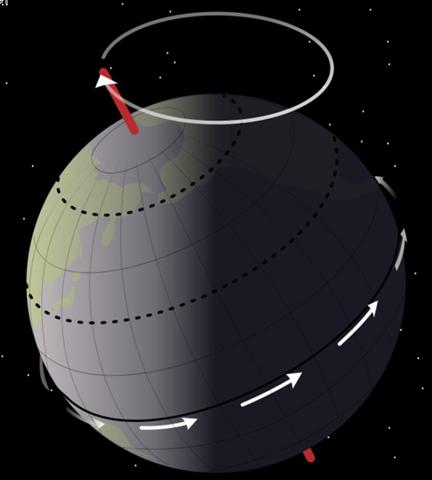
 |
|
Tori 2
E:1002
|
| he
noho te ariki a Hotu. he tuu ki te tahi |
Another month went by
[King Hotu remained (there) for a month], and he was
full of longing [he
topa tangi a mua] for his adopted child,
Veri Hina. |
|
marama.he topa tangi a mua.mo taana |
|
maanga hangai.ko veri hina. |
| he
ea he oho. te ariki.a Hotu.he tuu ki mua
|
King Hotu arose and went
away [he ea he oho.
te ariki.a Hotu]. He came to the front of
the house in Mahatua [he
tuu ki mua ki te hare ki mahatua]. He
entered [he tuu],
greeted them [he
aroha], and wept (because of the reunion)
[he tangi]. |
| ki
te hare ki mahatua.he tuu he aroha.he tangi. |
| ...
Certain Polynesian customs can more easily be
understood by us if they are seen as a straight
reversal of things we do ourselves. The Maori custom
of weeping over friends or relatives when they
return, rather than when they go away, is one
example, which has a logic not impossible to grasp
... |
| he
noho.i te ha(r)e o toona kope.hunonga.he otea |
He remained in the house (?) of his
young son-in-law. |
| he
kī.te ariki.a Hotu.kia Veri hina.penei ē. |
It grew light [he
otea], and King Hotu said the following [penei
ē] to Veri Hina: 'Keep your eyes on me,
(you and) the son-in-law, as soon as I leave. If the
terns (manu tara) fly (high) above me (hiri),
I shall continue to live. But if the terns dive
(down) on me (vevero), then I have died. Then
you (you and the son-in-law) shall go on your way!' |
| e ui
atu tokorua mata ko te hunonga kia au |
| ka
oho.nei au.ana hiri no te manu tara.i ru- |
|
nga.i a au.e ora no ana a au. ana
vevero te ma- |
| nu
tara i runga i a au.ku mate ana a au.e |
| oho
atu korua ko te hunonga.he haka.hoki |
| When swallows are flying
high it is a sign of good weather, when they fly low
it is the opposite. All who are observant know this.
Vero. To
throw, to hurl (a lance, a spear). This word was
also used with the particle kua preposed:
koía kua vero i te matá, he is the one who threw
the obsidian [weapon]. Verovero, to throw, to
hurl repeatedly, quickly (iterative of vero).
Vanaga. 1. Arrow, dart, harpoon, lance, spear, nail,
to lacerate, to transpierce (veo). P Mgv.:
vero, to dart, to throw a lance, the tail;
verovero, ray, beam, tentacle. Mq.: veó,
dart, lance, harpoon, tail, horn. Ta.: vero,
dart, lance. 2. To turn over face down. 3. Ta.:
verovero, to twinkle like the stars. Ha.:
welowelo, the light of a firebrand thrown into
the air. 4. Mq.: veo, tenth month of the
lunar year. Ha.: welo, a month (about April).
Churchill. Sa.: velo, to cast a spear or
dart, to spear. To.: velo, to dart. Fu.:
velo, velosi, to lance. Uvea: velo,
to cast; impulse, incitement. Niuē:
velo, to
throw a spear or dart. Ma.: wero,
to stab, to pierce, to spear. Ta.: vero,
to dart or throw a spear. Mg.: vero,
to pierce, to lance. Mgv.: vero,
to lance, to throw a spear. Mq.: veo,
to lance, to throw a spear. Churchill 2.
WELO, v. Haw., to float or stream in the
wind; to flutter or shake in the wind, s. the
setting of the sun, or the appearance of it floating
on the ocean; welo-welo, colours or cloth
streaming in the wind, a tail, as of a kite, light
streaming from a brand of fire thrown into the air
in the dark; hoku-welo-welo, a comet, a
meteor; ko-welo, to drag behind, as the trail
of a garment, to stream, as a flag or pennant. Sam.,
Tong., welo, to dart, cast a spear of dart.
Tah., wero, to dart, throw a spear; a storm,
tempest, fig. great rage; wero-wero, to
twinkle, as the stars. Marqu., weo, a tail.
Mangar., wero, a lance, spear. Greek,
βαλλω,
εβαλον, to throw,
cast, hurl, of missiles, throw out, let fall, push
forward; βελος,
a missile, a dart; βελεμνον,
id., βολη,
a throw, a stroke; βολος,
anything thrown, missile, javelin, a cast of the
dice. Sanskr., pal,
to go, to move. To this Benfey refers the Lat.
pello,
Greek παλλω,
O. H. Germ. fallan,
A.-Sax. feallan.
Liddell and Scott are silent on these connections
... (Fornander) |
|
mai.a Veri hina.i te kī.ku
mao ana.e koro ē. |
To this Veri Hina
replied [he haka.hoki
mai i te kī], 'Agreed, father [e
koro ē], we both, (I and) the son-in-law,
shall keep a lookout.' |
| e ui
no atu maua ko te hunonga. |
|
Mou. 1.
Enough (moua, mouga). PS Sa.: mou,
many. 2. To get (mau); hakamou, id. 3.
To use up, to expand, to absorb; hakamou, to spend;
hakamoumou, to use up, to expend. 4. To be
silent, shy, dejected, stupid, taciturn, mute,
uncomplaining, silence, shut up!, attention!; mou
no, to speak in laconic terms, dull, mute,
silence; hakamou, to silence, to shut up, to
quiet. Mq.: mou, peace, tranquil, quiet. 5.
To cease, to end, to finish, to conclude; a pact,
agreement; mou noa, to endure (mau); mou a
te toua, reconciliation; ina kai mou,
always, eternal, perpetual; ina e ko mou,
incessant; e ko mou, always; tae mou,
permanent, perpetual; hakamou, to accomplish,
to end, to conclude, to consummate, to conciliate;
e ko moumou, indissoluble; hakamoumouga,
the finish, termination, Mgv.: mou, to quench
the thirst. 6. To harass; mou no, to suffer
damage; hakamou, to abolish, abrogate,
annihilate, nullify, annul, impoverish, destroy,
interrupt, exsterminate, plunder, smooth out folds;
moumou, to devastate, pillage, devastation,
destruction; hakamoumou, to demolish, to
ravage, to suppress. Ta.: mou, to extinguish,
to destroy. Moua, enough, past (mou,
mouga). Churchill. |
he
oho.mai te ariki a Hotu. (Crossed out:
he oho.mai) a tai |
The king went towards
the sea [a tai]
(i.e., toward the southern shore). When he reached
Hatinga Te Kohe A Hau Matua ... |
| ana
he tuu ki te hatinga te kohe. a Hau Maka. |
... A vestige of the practice of putting
the king to death at the end of a year's reign appears to
have survived in the festival called Macahity, which
used to be celebrated in Hawaii during the last month of the
year. About a hundred years ago a Russian voyager described
the custom as follows: 'The taboo Macahity is not
unlike to our festival of Christmas. It continues a whole
month, during which the people amuse themselves with dances,
plays, and sham-fights of every kind. The king must open
this festival wherever he is. On this occasion his majesty
dresses himself in his richest cloak and helmet, and is
paddled in a canoe along the shore, followed sometimes by
many of his subjects. He embarks early, and must finish his
excursion at sunrise. The strongest and most expert of the
warriors is chosen to receive him on his landing. The
warrior watches the canoe along the beach; and as soon as
the king lands, and has thrown off his cloak, he darts his
spear at him, from a distance of about thirty paces, and the
king must either catch the spear in his hand, or suffer from
it: there is no jesting in the business. Having caught it,
he carries it under his arm, with the sharp end downwards,
into the temple or heavoo.
On his entrance, the assembled multitude begin their
sham-fights, and immediately the air is obscured by clouds
of spears, made for the occasion with blunted ends.
Hamamea
(the king) has been frequently advised to abolish this
ridiculous ceremony, in which he risks his life every year;
but to no effect. His answer always is, that he is as able
to catch a spear as any one on the island is to throw it at
him. During the Macahity, all punishments are
remitted throughout the country; and no person can leave the
place in which he commences these holidays, let the affair
be ever so important ...
The 11th Arab station was where the G text has a vero
type of glyph:
|
 |
 |
|
vero |
Vero. To throw,
to hurl (a lance, a spear). This word was also used with the
particle kua preposed: koía kua vero i te matá,
he is the one who threw the obsidian [weapon].
Verovero, to throw, to hurl repeatedly, quickly
(iterative of vero). Vanaga. 1. Arrow, dart, harpoon,
lance, spear, nail, to lacerate, to transpierce (veo).
P Mgv.: vero, to dart, to throw a lance, the tail;
verovero, ray, beam, tentacle. Mq.: veó, dart,
lance, harpoon, tail, horn. Ta.: vero, dart, lance.
2. To turn over face down. 3. Ta.: verovero, to
twinkle like the stars. Ha.: welowelo, the light of a
firebrand thrown into the air. 4. Mq.: veo, tenth
month of the lunar year. Ha.: welo, a month (about
April). Churchill. Sa.: velo, to cast a spear or
dart, to spear. To.: velo, to dart. Fu.: velo,
velosi, to lance. Uvea: velo, to cast;
impulse, incitement. Niuē:
velo, to throw a
spear or dart. Ma.: wero,
to stab, to pierce, to spear. Ta.: vero,
to dart or throw a spear. Mg.: vero,
to pierce, to lance. Mgv.: vero,
to lance, to throw a spear. Mq.: veo,
to lance, to throw a spear. Churchill 2. WELO,
v. Haw., to float or stream in the wind; to flutter
or shake in the wind, s. the setting of the sun, or
the appearance of it floating on the ocean; welo-welo,
colours or cloth streaming in the wind, a tail, as of a
kite, light streaming from a brand of fire thrown into the
air in the dark; hoku-welo-welo, a comet, a meteor;
ko-welo, to drag behind, as the trail of a garment,
to stream, as a flag or pennant. Sam., Tong., welo,
to dart, cast a spear of dart. Tah., wero, to dart,
throw a spear; a storm, tempest, fig. great rage;
wero-wero, to twinkle, as the stars. Marqu., weo,
a tail. Mangar., wero, a lance, spear. Greek,
βαλλω, εβαλον,
to throw, cast, hurl, of missiles, throw out, let fall, push
forward; βελος, a
missile, a dart; βελεμνον,
id., βολη, a
throw, a stroke; βολος,
anything thrown, missile, javelin, a cast of the dice.
Sanskr., pal, to
go, to move. To this Benfey refers the Lat. pello,
Greek παλλω, O.
H. Germ. fallan,
A.-Sax. feallan.
Liddell and Scott are silent on these connections ...
(Fornander)
|
Delta
(→ 4) |
δ Andromedae |
8.4 |
March 29 (88) |
0 |
|
|
1 |
Al Sharatain |
Pair of Signs |
β Arietis (Sheratan),
γ (Mesarthim) |
27.4 |
April 17 (107) |
19 |
|
|
Musca Borealis |
35 (Head of the Fly), 39
(Kaffaljidhma), and
41 Arietis (Bharani) |
41.4 |
May 1 (121) |
33 |
0 |
|
2 |
Al Dabarān |
Follower |
α Tauri (Aldebaran), θ¹, θ²´,
γ (Hyadum I),
δ (Hyadum II), ε (Ain) |
63.4 |
May 23 (143) |
55 |
22 |
|
3 |
Al Hak'ah |
White Spot |
λ
Orionis (Heka),
φ¹,
φ² |
83.4 |
June 12 (163) |
75 |
42 |
|
4 |
Al Han'ah |
Brand |
γ Gemini (Alhena), μ (Tejat
Posterior), ν,
η (Tejat Prior),
ξ (Alzirr) |
93.4 |
June 22 (173) |
85 |
52 |
|
5 |
Al Dhirā' |
Forearm |
α Gemini (Castor),
β (Pollux) |
113.4 |
July 12 (193) |
105 |
72 |
|
6 |
Al Nathrah |
Gap |
ε Cancri (Beehive) |
130.4 |
July 29 (210) |
123 |
90 |
|
7 |
Al Tarf |
End |
ξ
Cancri,
λ
Leonis (Alterf) |
143.4 |
Aug 11 (223) |
135 |
102 |
|
8 |
Al Jabhah |
Forehead |
η Leonis (Al Jabhah),
α (Regulus), ζ (Adhafera), γ
(Algieba) |
152.4 |
Aug 20 (232) |
144 |
111 |
|
9 |
Al Zubrah |
Mane |
δ Leonis (Zosma), θ (Coxa) |
169.4 |
Sept 6 (249) |
161 |
128 |
|
10 |
Al Sarfah |
Turn |
β Leonis (Denebola) |
178.3 |
Sept 15 (258) |
170 |
137 |
|
11 |
Al Áwwā' |
Barker |
β (Alaraph), η (Zaniah),
γ
(Porrima),
δ
(Minelauva), ε Virginis (Vindemiatrix) |
191.5 |
Sept 28 (271) |
183 |
150 |
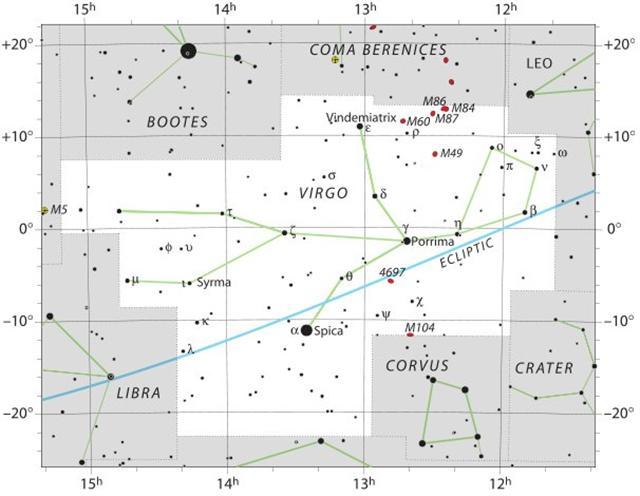
|
MAY
29 |
30 |
31
(151) |
JUNE
1 |
2
(*73) |
 |
 |
 |
 |
 |
|
Ga3-10 |
Ga3-11 (350
/ 5) |
Ga3-12 (71) |
Ga3-13 (360 / 5) |
Ga3-14 (365 / 5) |
|
γ Pyxidis (133.6) |
ζ
Hydrae (134.1),
ρ
Cancri (134.2),
ζ
Oct.
(134.3), ο Cancri (134.6), δ Pyxidis
(134.9) |
ACUBENS
= α Cancri,
TALITHA BOREALIS = ι Ursae Majoris
(135.0), σ Cancri (135.2), ρ Ursa
Majoris (135.6) |
ν Cancri (136.0),
TALITHA AUSTRALIS = κ Ursae Majoris
(136.1), ω Hydrae (136.8) |
9h (137.0)
σ¹ Ursa Majoris (137.0), κ Cancri
(137.3), τ Cancri (137.4),
ALSUHAIL (al Wazn, of the Weight) = λ
Velorum
(137.5), σ² Ursa Majoris (137.6), τ Ursa
Majoris (137.7), ξ Cancri (137.8)
*96.0 = *137.4 - *41.4 |
|
Talitha,
the First Spring of the Gazelle |
|
Aug 1 |
2
(182 + 32) |
3 (*365 + *135) |
4 (216) |
5 |
|
°July 28 |
29 (*130) |
30 |
31 |
°Aug 1 |
|
'July 5 |
6 (*107) |
7 |
8 |
9 (190) |
|
SOLSTICE |
"June
22 (*93) |
23 |
ST
JOHN'S DAY |
25 |
|
72 |
73 |
74 |
75 =
216 - 141 |
76 |
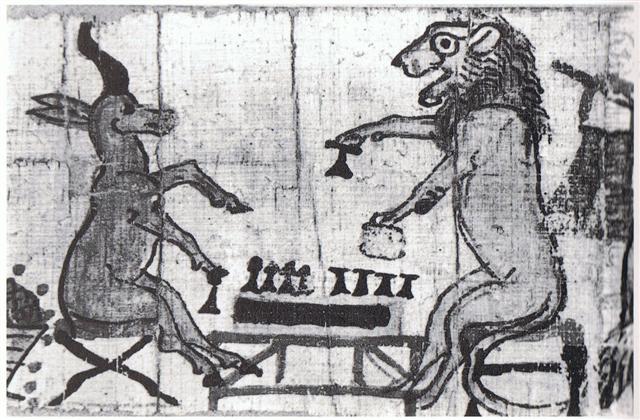 |
|
NAKSHATRA DATES: |
|
NOV
28 |
29 |
30
(*254) |
DEC 1 |
2
(336 = 4 * 84) |
|
μ Aquarii (316.0) |
ε Equulei (317.8) |
no star listed (318) |
21h (319.6)
ARMUS = η Capricorni
(319.0),
DORSUM = θ Capricorni
(319.3),
TSOO = 24 Capricorni
(319.7) |
DRAMASA
=
σ
Oct.,
χ
Capricorni (320.0),
ν
Aquarii (320.3),
γ
Equulei (320.6),
ο
Pavonis (320.8) |
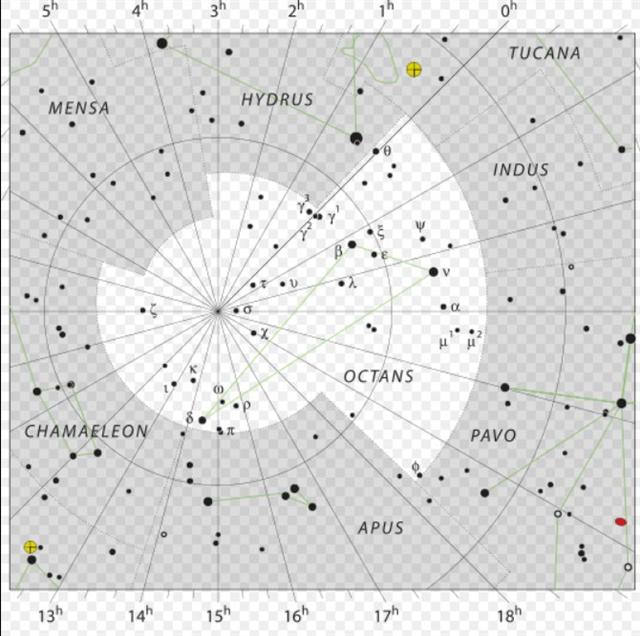 |
|
Jan 31 |
Febr
1 |
2 |
3 |
4 (400 = 80 + 320) |
|
°Jan 27 |
28 |
29 (*314) |
30 |
31 (396) |
|
'Jan 4 |
5 (*290) |
6 |
7 (372) |
8 |
|
SOLSTICE (*275) |
"Dec
22 |
23 |
X-MAS
EVE |
25 |
|
*175
= *316 - *141 |
*176 |
*177 |
*178 |
*179
= *320 - *141 |
|
3 |
4 |
JUNE
5 |
6
(157 = 221 - 64) |
 |
 |
 |
 |
|
Ga3-15 |
Ga3-16 |
Ga3-17 |
Ga3-18 (77) |
|
κ Pyxidis (138.0), ε Pyxidis (138.5) |
π
Cancri (139.2),
MIAPLACIDUS = β Carinae
(139.3),
TUREIS (Little Shield) = ι Carinae
(139.8) |
no star listed (140) |
θ
Pyxidis (141.5),
MARKAB VELORUM =
κ
Velorum
(141.5),
AL MINHAR AL ASAD
(The Nose of the Lion) =
κ
Leonis
(141.6),
λ
Pyxidis (141.9) |
|
6 |
7
(584 → Venus) |
Aug 8
(220) |
9
(*141) |
|
2 (214) |
3 |
°Aug 4 (216) |
5 |
|
10 |
11 |
'July 12 (193) |
13 (*114) |
|
26
(177 = 354 / 2) |
27 |
"June
28 (*99) → 2π |
29
(180 = 80 + 100) |
|
77 |
78 |
79 =
220 - 141 |
0h =
80 (= 157 - 77) |
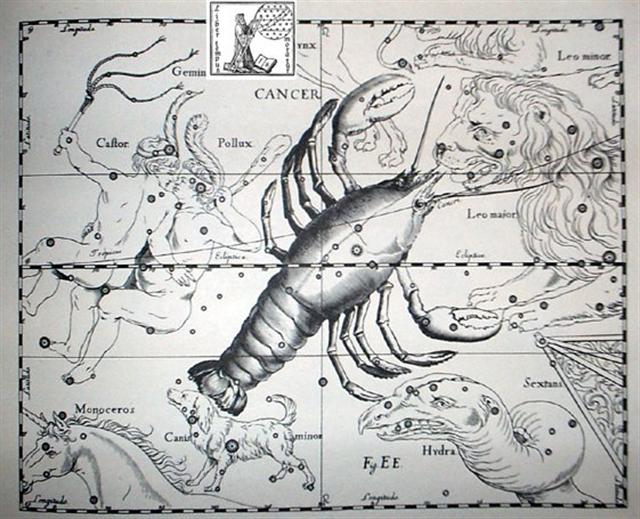 |
|
NAKSHATRA DATES: |
|
3 |
4 |
DEC 5 |
6
(340) |
|
α Oct. (321.5),
δ
Equulei (321.7),
φ
Capricorni (321.8) |
KITALPHA (Part of a Horse)
=
α
Equulei
(322.0),
ALDERAMIN (The Right Arm)
= α Cephei
(322.9) |
DAI = ι Capricorni
(323.5),
β
Equulei (323.8) |
γ
Pavonis (324.1),
YAN = ζ Capricorni
(324.6) |
|
5
(36) |
6 |
Febr
7 (403) |
8
(*324) |
|
°Febr 1 |
2 |
°Febr 3 (399) |
4 (*320) |
|
9 |
10 |
'Jan 11
(*296) |
12 (377) |
|
26
(360) |
"Dec
27 |
28
(*282 → 2 * 141) |
29
(363 = 3 * 121) |
|
*180 |
*181 |
*323
- *141 = *182 |
*324
- *141 = *183 |
|
25 |
JULY 2 |
3 (184) |
4 |
 |
 |
 |
|
Ga4-20 |
Ga4-21 (104) |
Ga4-22 |
|
11h (167.4)
χ Leonis, χ¹ Hydrae (167.1), χ² Hydrae
(167.3)
*167.4 - *41.4 = *126.0 |
AL SHARAS (The Ribs)
=
β
Crateris
(168.6) |
Al Zubrah-9 (Mane) /
Purva Phalguni-11 (First Reddish One - Fig
Tree)
ZOSMA (Girdle, not Belt)
=
δ
Leonis
(169.2),
COXA (Hips)
=
θ
Leonis
(169.4)
*169.4 - *41.4 = *128.0 |
 |
|
Sept 4 |
5 (248 =
104 + 12 * 12) |
6 |
|
°Aug 31 |
°Sept 1 (*164) |
2 (245) |
|
'Aug 8 (*140) |
9 |
10 (222) |
|
"July 25 (*126) |
26 |
27 (208 =
108 + 100) |
|
106 |
248 - 141
= 107 |
108 = 185
- 77 |
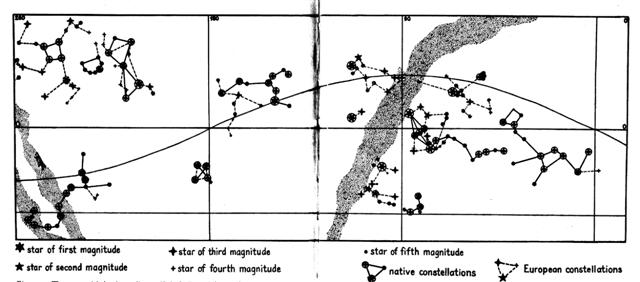 |
|
NAKSHATRA DATES: |
|
JAN 1
(183 + 183) |
2 |
3 (368) |
|
23h (350.0)
υ, θ Gruis (350.0), π Cephei (350.6), ι
Gruis (350.9) |
SIMMAH = γ Piscium
(351.7) |
φ Aquarii (352.0), ψ Aquarii (352.4), χ
Aquarii (352.6), γ Tucanae, φ Gruis (352.8)
*352.4 - *41.4 = *311.0 |
|
March 6
(*350) |
7 (66) |
8 (432) |
|
°March 2 (*346) |
3 |
4 (63) |
|
'Febr 7 |
8 (*324) |
9 (40) |
|
"Jan 24 |
25 (*310) |
26 |
|
*350 -
*141 = *209 |
*210 =
*310 - *100 |
*211 |
|
5 |
JULY 10
(*111) |
11 |
12 (193) |
13 |
14 |
 |
 |
 |
 |
 |
|
Ga5-1 (111) |
Ga5-2 |
Ga5-3 |
Ga5-4 |
Ga5-5 |
|
θ
Crateris (175.0),
υ
Leonis (175.2),
ω
Virginis (175.3),
ι
Crateris (175.5) |
ο Hydrae (176.1) |
ζ
Crateris,
ξ
Virginis (177.0),
λ
Muscae (177.1),
ν
Virginis (177.2),
μ
Muscae (177.8) |
Al Sarfah-10 (Turn) /
Uttara Phalguni-12 (Second Reddish One) /
Zibbat A.-16 (Tail of the Lion) / Shēpu-arkū
sha-A-17 (Hind Leg of the Lion)
93 Leonis
(178.0),
DENEBOLA
= β Leonis
(178.3),
ALARAPH
(Unarmed) = β Virginis
(178.6) |
PHEKDA ('Thigh of the Bull'')
=
γ
Ursae Majoris,
β
Hydrae (179.3),
η
Crateris (179.9)
DENEB CYGNI (α Cygni) |
|
Sept 12 |
13 |
14 (*354
/ 2) |
15 |
16 (259) |
|
°Sept 8 |
9 (*172) |
10 |
11 (254) |
12 |
|
'Aug 16 |
17 (229) |
18 (*150) |
19 |
20 |
|
"Aug 2 (2
* 107) |
3 |
4 (*136) |
5 |
6 |
|
114 = 255
- 141 |
115 |
116 |
117 |
118 = 2 *
59 |
|
The Egyptians identified
their Thigh of the Bull with Ursa
Major.
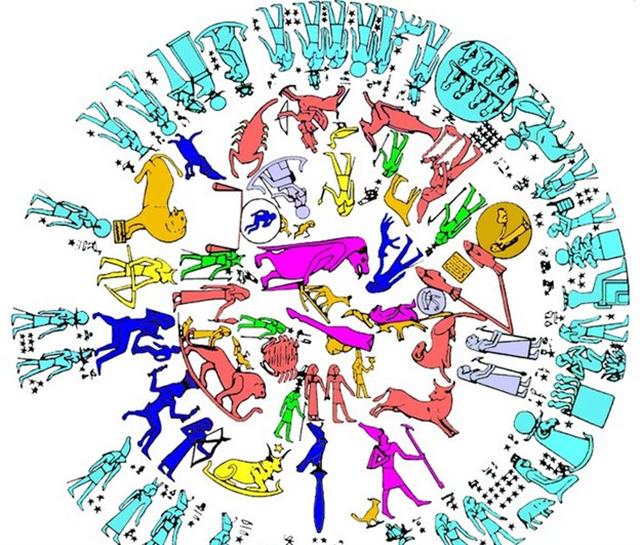 |
|
NAKSHATRA DATES: |
|
JAN 9 |
10 (*295) |
11 |
12 |
13 (378 →
Saturn) |
|
λ Piscium (358.0),
MANUS CATENATA (Chained Hand)
= ι Andromedae
(358.1),
ALRAI (Shepherd)
= γ Cephei,
θ Phoenicis (358.4), κ Andromedae (358.7)
*317.0 = *358.4 - *41.4 |
ω Aquarii (359.2),
78 Pegasi
(359.5) |
ψ Andromedae (360.1), σ Phoenicis (360.4)
*319.0 = *360.4 - *41.4 |
γ¹ Oct. (361.4), φ Pegasi (361.7)
*320.0
= *361.4 - *41.4 |
DZANEB (Tail) =
ω
Piscium
(362.4),
γ²
Oct.
(362.8)
*321.0 = *362.4 - *41.4 = *335 - *14 |
|
3-14 |
March 15 |
16 (*360) |
17 |
18 (77) |
|
°March 10 |
11 (*355) |
12 |
13 |
3-14 |
|
'Febr 15 |
16 (*332) |
17 |
18 |
19 (50) |
|
"Febr
1 |
2 |
3 |
4 (*320) |
5 (36) |
|
*217 |
*218 |
*219 |
*220 =
*320 - *100 |
*221 |
|
11 |
JULY 26 |
27 |
28 |
29 (210) |
30 (*131) |
 |
 |
 |
 |
 |
|
Ga5-17 |
Ga5-18 (128) |
Ga5-19 |
Ga5-20 |
Ga5-21 |
|
Al Áwwā'-11 (The Barker) /
Shur-mahrū-shirū-18 (Front or West Shur)
SOMBRERO GALAXY = M104 Virginis
(191.1),
ρ
Virginis (191.4),
PORRIMA
= γ Virginis,
γ
Centauri (191.5)
*150.0 = *191.4 - *41.4 |
ι Crucis (192.2), β Muscae (192.5),
MIMOSA
= β Crucis
(192.9) |
no star
listed (193) |
κ
Crucis (194.4),
ψ
Virginis (194.5),
μ
Crucis,
λ
Crucis (194.6),
ALIOTH (Fat Tail) =
ε
Ursae Majoris,
ι
Oct.
(194.8)
*153.0 = *194.4 - *41.4 |
MINELAUVA
=
δ
Virginis
(195.1),
COR CAROLI =
α
Canum Ven.
(195.3) |
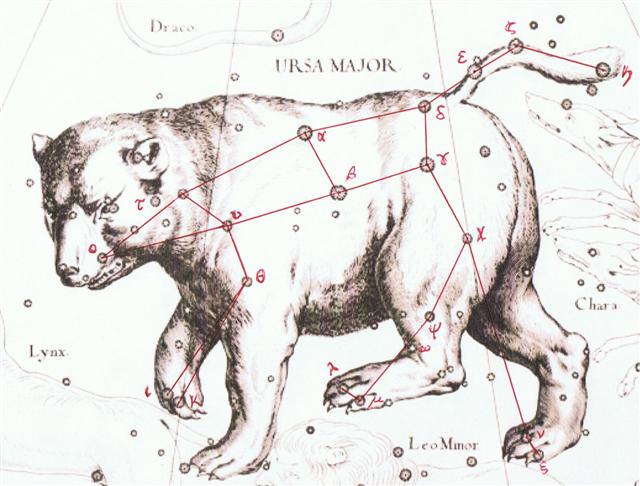 |
|
Sept 28 |
29 (*192) |
30 (273 = 3 * 91) |
Oct 1 |
2 |
|
°Sept 24 |
25 (*188) |
26 |
27 (270) |
28 |
|
'Sept 1 |
2 (*165) |
3 |
4 |
5 (248) |
|
"Aug 18 (*150) |
19 (231) |
Hora Iti 20 |
21 |
22 |
|
271 - 141 = 130 |
131 = 231 - 100 |
132 |
133 |
134 |
|
... On the
twentieth day of the month of August ('Hora Iti')
they went to Papa O Pea.
They all went and came to Papa O Pea, looked around
in Papa O Pea, and gave the name 'Papa O Pea A Hau
Maka'.They
stayed five days in Papa O Pea.
On the twenty-sixth day of the
month of August ('Hora Iti') they went from Papa O
Pea to Ahu Akapu ... [E:30] |
|
NAKSHATRA DATES: |
|
JAN 25 |
26 |
27 (392) |
28 |
29 (*314) |
|
ξ
Phoenicis (9.0),
ρ
Tucanae (9.1),
DENEB KAITOS (Tail of the Sea Beast)
=
β
Ceti,
η
Phoenicis (9.4),
AL
NITHĀM (String of Pearls)
= φ¹ Ceti
(9.6)
*334.0 = *375.4 - *41.4 |
ACHIRD
(Woman with Luminous Rays)
=
η
Cassiopeiae
(10.7) |
Legs-15 (Wolf)
ν
Andromedae (11.0),
φ²
Ceti (11.1),
ρ
Phoenicis (11.2),
η
Andromedae
(11.4)
*336.0 = *377.4 - *41.4 |
CIH (Whip) = γ Cassiopeiae,
λ Tucanae (12.4), φ³ Ceti (12.6), μ Andromedae
(12.8)
*337.0 = *378.4 - *41.4 |
φ4 Ceti (13.2) |
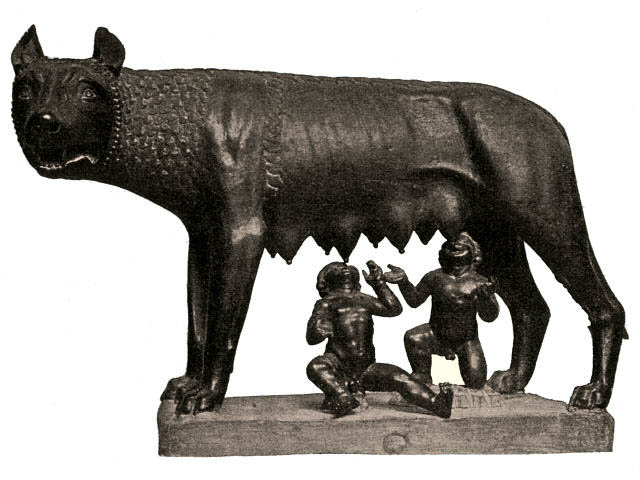 |
|
March 30 |
31 (*375) |
April 1 (91) |
2 |
3 |
|
°March
26 |
27 |
28
(*372) |
29 (88) |
30 |
|
'March 3 |
4 |
5 (64) |
6 (*350) |
7 |
|
"Febr 17 |
18 |
19 (50) |
20 (*336) |
21 |
|
*233 |
*234 |
*235 |
*236 = *336 -
*100 |
*237 |
|
JULY 31 |
AUG 1 |
2 (214) |
3 |
4 (*136) |
5 |
6 |
 |
 |
 |
 |
 |
 |
 |
|
Ga5-22 |
Ga5-23 |
Ga5-24 |
Ga5-25 (135) |
Ga5-26 |
Ga5-27 |
Ga5-28 |
|
δ
Muscae (196.5),
VINDEMIATRIX (Grape Gatherer)
=
ε
Virginis
(196.8) |
13h (197.8)
ξ¹ Centauri (197.1), ξ² Centauri (197.9 |
APAMI-ATSA (Child of Waters)
=
θ
Virginis,
ψ
Hydrae (198.5),
DIADEM
=
α
Com. Ber.
(198.9 |
AL
DAFĪRAH
(Tuft) = β Com. Ber.
(199.4)
*158.0 = *199.4 - *41.4 |
σ Virginis (200.4)
*159.0 = *200.4 - *41.4 |
γ Hydrae (201.0), ι Centauri (201.4)
*160.0 = *201.4 - *41.4 |
Al Simāk-12 (Lofty) /
Chitra-14 (Bright One) /
Horn-1 (Crocodile) /
Sa-Sha-Shirū-20
(Virgin's Girdle) /
ANA-ROTO-3 (Middle pillar)
MIZAR =
ζ
Ursae Majoris
(202.4),
SPICA
=
α
Virginis,
ALCOR
= 80 Ursae Majoris
(202.7)
SADALMELIK (α Aquarii)
*161.0 = *202.4 - *41.4 |
|
Oct 3 |
4 |
5 |
6 |
7 (*200) |
8 |
9 (282) |
|
°Sep 30 |
°Oct 1 |
2 |
3 (275) |
4 (*196) |
5 |
6 |
|
'Sept 6 |
7 (250) |
8 |
9 |
10 |
11 |
12 (*175) |
|
"Aug
23 |
24 (4 *
59) |
25 |
Hora Iti
26 |
27 |
28 |
Hora Iti
29 |
|
135 |
136 =
236 - 100 |
137 |
138 |
139 |
140 |
141 =
282 - 141 |
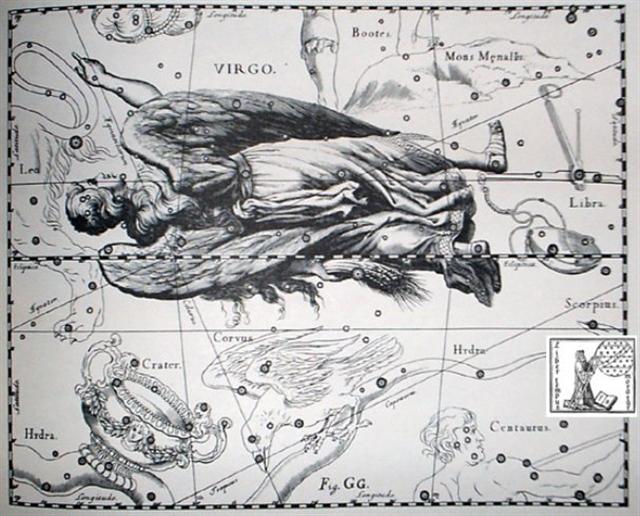 |
|
NAKSHATRA DATES: |
|
JAN 30 |
31 |
FEBR 1 |
2 |
3 |
4 (400) |
5 (36) |
|
no star listed (14) |
1h (15.2)
β Phoenicis (15.1), υ Phoenicis, ι Tucanae
(15.6), η Ceti, ζ Phoenicis (15.7) |
Al Batn Al Hūt-26 (Belly of the Fish) /
Revati-28 (Prosperous) /
1-iku (Field Measure)
MIRACH
(Girdle) =
β
Andromedae, KEUN MAN MUN (Camp's South Gate)
=
φ
Andromedae
(16.0),
ANUNITUM
=
τ
Piscium
(16.5),
REVATI
(Abundant) =
ζ
Piscium
(16.9)
REGULUS
(α Leonis) |
ν Phoenicis (17.4), κ Tucanae (17.6)
*342.0 = *383.4 - *41.4
= *159.0 + *183.0 |
no star listed (18) |
ADHIL (Garment's Train)
=
ξ
Andromedae
(19.3),
θ
Ceti (19.7) |
KSORA
(Knee) = δ Cassiopeiae
(20.1), ω Andromedae (20.6), γ Phoenicis
(20.8) |
|
April 4 |
5 (460) |
6 |
7 |
8 |
9 (*384) |
10 (100) |
|
°March 31 |
°April 1 (91) |
2 |
3 |
4 |
5 |
6 (*16) |
|
'March 8 |
9 |
10 (*354) |
11 |
12 |
13 (72) |
3-14 |
|
"Febr 22
(53) |
TERMINALIA |
24 (*340) |
25 |
26 |
27 |
28 |
|
*238 |
*239 |
*340 -
*100 |
*241 |
*242 |
*384 -
*141 |
*244 |
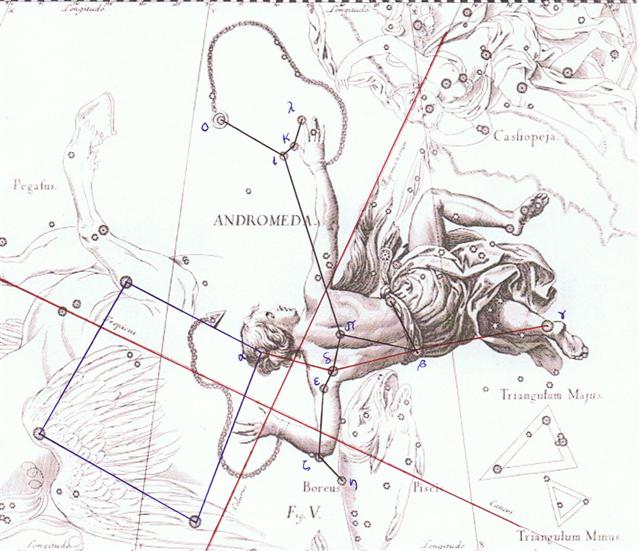 |
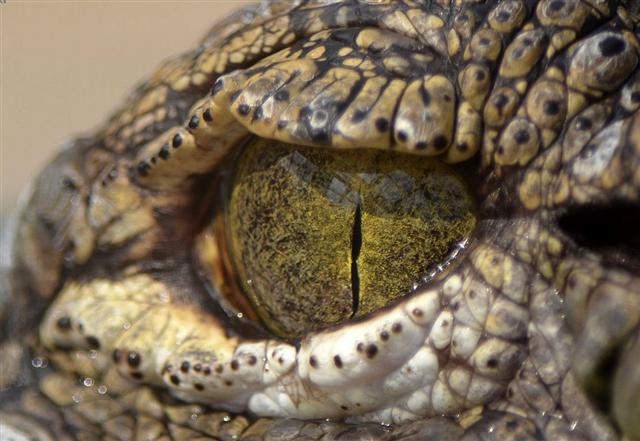
|





























